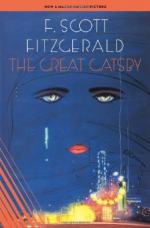|
This section contains 9,417 words (approx. 32 pages at 300 words per page) |

|
SOURCE: Callahan, John F. “F. Scott Fitzgerald's Evolving American Dream: The ‘Pursuit of Happiness’ in Gatsby, Tender Is the Night, and The Last Tycoon.” Twentieth Century Literature 42 (fall 1996): 374-95.
In the following essay, Callahan examines various manifestations of the idea of the American dream as it evolved in three Fitzgerald novels.
Since the first stirrings of the F. Scott Fitzgerald revival in the 1940s, readers have been fascinated by the oppositions in his work and character. Critics from several different generations have noted how Fitzgerald used his conflicts to explore the origins and fate of the American dream and the related idea of the nation.1 The contradictions he experienced and put into fiction heighten the implications of the dream for individual lives: the promise and possibilities, violations and corruptions of those ideals of nationhood and personality “dreamed into being,” as Ralph Ellison phrased it, “out of the chaos...
|
This section contains 9,417 words (approx. 32 pages at 300 words per page) |

|


